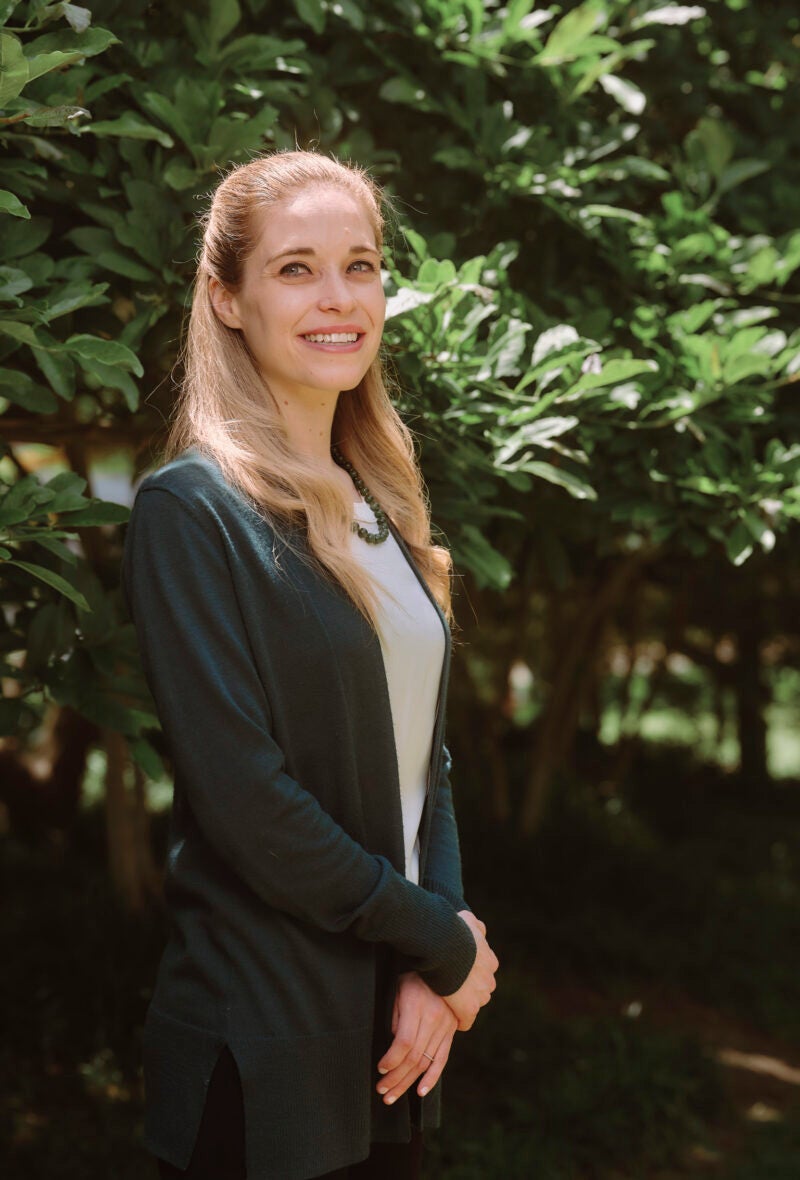Like a detective, Elizabeth Arkell enjoys sifting through information, painstakingly piecing together facts, and then applying them to the law. As an attorney with the Consumer Financial Protection Bureau, or CFPB, she puts those investigatory skills to good use, hunting down violators of fair lending rules and working to protect all Americans from exploitative lending practices.
“Working toward the creation of a more inclusive financial system that is focused on equity, in addition to being safe and sound, is crucial,” she says. “I think this is true from both a civil rights perspective and also a societal perspective.”
Arkell has long known she wanted to work in the public interest. After college, she spent four years at the U.S. Department of State at its Iraq desk, managing international development programs. But she soon found herself gravitating to domestic issues and the legal system, leading her to Harvard Law School.
As a law student, she says she reveled in classes like Legislation and Regulation, which helped her better understand the structure and functioning of the administrative state. She also praises her time in the Harvard Immigration and Refugee Clinic. But it was during the Semester in Washington program, as she worked on housing and civil enforcement at the Department of Justice’s Civil Rights Division, that she first gained experience in the issues — and fact-finding skills — that would come to define her career.
“I had the opportunity to participate in investigations and litigation of housing and credit discrimination. I traveled to Jackson, Mississippi, and to Chicago during that semester to help with depositions and participate in interviewing witnesses to gather evidence,” she says. “I found the experience to be incredibly valuable and interesting. And I learned not only what that office does, but all that a government lawyer can do.”
After graduation, Arkell joined a large white-collar defense firm, where she says she was able to hone expertise in several practice areas. But while she appreciated litigation, she found that she preferred investigation and analysis to trial work. And five years later, she was ready to return to the government — she just needed the right fit.
“I talked to a lot of people, including other HLS alums, and the CFPB kept coming up in conversations,” she says. “I made a point of staying up to date on CFPB actions, even when it didn’t directly relate to my work in private practice.”
“There is a clear through line between the work I did at DOJ during my Semester in Washington and the work I do now.”
Now, as an attorney with the agency, Arkell ensures that banks and nonbanks alike comply with the Equal Credit Opportunity Act, which forbids lenders from discriminating against those seeking credit on the basis of their race, color, religion, national origin, sex, marital status, or age. “For me, there is a clear through line between the work I did at DOJ during my Semester in Washington and the work I do now at CFPB,” she says.
Arkell adds that she especially appreciates the mission-driven aspect of her work. “And there is always something to learn, and many people to learn from, at the agency,” she says. “There are so many subject matter experts embedded at the bureau. And they’re not just knowledgeable about the legal framework that we’re operating under, but on the markets and technology that impact the bureau’s work as well.”
Arkell says she hopes to dedicate the rest of her career to consumer protection issues. “I really do think that the work my office does is one small piece in a much larger ecosystem of creating the type of financial system that’s more equitable and inclusive,” she says. “And what really drives me is working toward that more inclusive financial system.”
Working for the People
Fifteen years ago, Harvard Law School launched its Semester in Washington Clinic, an externship program focused on training government lawyers. Meet three other former participants who are dedicating their careers to government service
